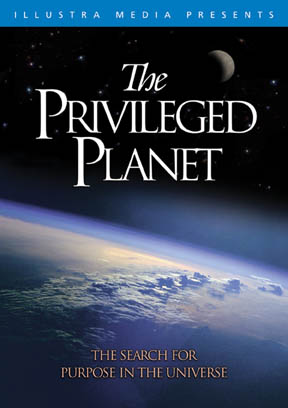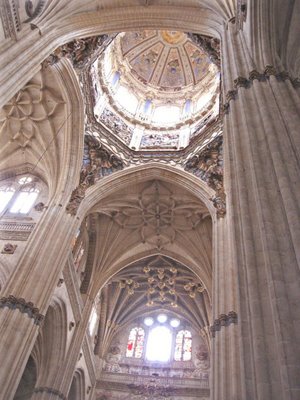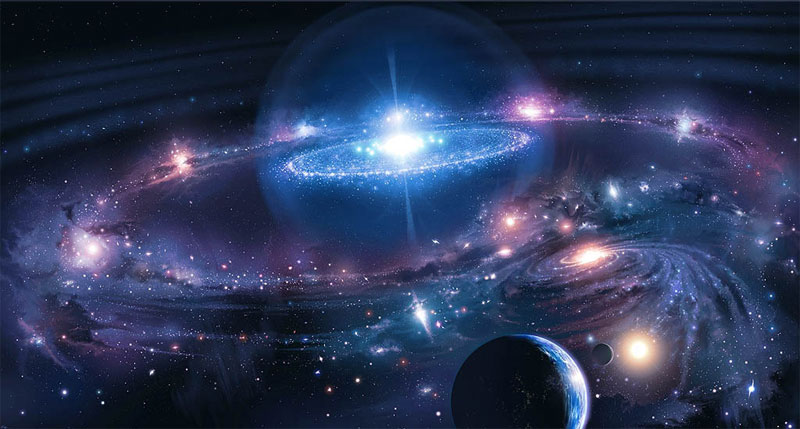The Privileged Person - the Cosmos is Made for Man, and Man is Made for Liturgy
 Both Modern Astrophysics and Ancient Cosmology Confirm that the Heavens Proclaim the Glory of the Lord and that Man is Made to Discover It I have posted a longer article (see 'Articles' page in this site) inspired by the Discovery Institute film, The Privileged Planet. This film used recent developments in astrophysics to assert that the planetry conditions that are necessary for intelligent life to occur in the universe are the same that will allow that intelligent life to observe the rest of that universe. It also says that the chances of these two sets of conditions occuring are negligible and point the fact that there is very unlikely to be anyother intelligent life in the universe; and that if the laws of physics and chemistry were the only factors contributing to the beginning of life, that it would never have happened at all. It's findings are consistent with the idea that man is hardwired, so to speak, by God to see the work of the Creator in his Creation; and that he is in a unique position to observe the that Creation. I love this film and often show it to our students at Thomas More College as it supports so many of the assumptions behind the observation of nature by artists. However, I feel that the argument could go even further. We could explore the question as to why God would do this?
Both Modern Astrophysics and Ancient Cosmology Confirm that the Heavens Proclaim the Glory of the Lord and that Man is Made to Discover It I have posted a longer article (see 'Articles' page in this site) inspired by the Discovery Institute film, The Privileged Planet. This film used recent developments in astrophysics to assert that the planetry conditions that are necessary for intelligent life to occur in the universe are the same that will allow that intelligent life to observe the rest of that universe. It also says that the chances of these two sets of conditions occuring are negligible and point the fact that there is very unlikely to be anyother intelligent life in the universe; and that if the laws of physics and chemistry were the only factors contributing to the beginning of life, that it would never have happened at all. It's findings are consistent with the idea that man is hardwired, so to speak, by God to see the work of the Creator in his Creation; and that he is in a unique position to observe the that Creation. I love this film and often show it to our students at Thomas More College as it supports so many of the assumptions behind the observation of nature by artists. However, I feel that the argument could go even further. We could explore the question as to why God would do this?
To me it seems there are three great lessons to be learnt by looking at the cosmos. The first is the general principle that it's beauty causes awe and wonder in us and motivates us to wonder at the One who created it.
 Second is that once having stirred in us a desire to praise and worship God, it then gives us the pattern to which our praise and worship should conform. The Church's liturgy is based upon the movements of the bodies in the cosmos. This then indicates why we have those institutions so hated by modern man - organised religions. Religion is not just a private affair, for if my worship is modelled on the cosmos, so will everybody else's and the end result is that we worship together. The cosmos is the organising principle behind organised religion.
Second is that once having stirred in us a desire to praise and worship God, it then gives us the pattern to which our praise and worship should conform. The Church's liturgy is based upon the movements of the bodies in the cosmos. This then indicates why we have those institutions so hated by modern man - organised religions. Religion is not just a private affair, for if my worship is modelled on the cosmos, so will everybody else's and the end result is that we worship together. The cosmos is the organising principle behind organised religion.
Third is that every aspect of human work can, potentially, be organised on the same principle and historically it was. Christian culture has always been rooted in a reflection of the beauty of the cosmos, articulated numerically. In this way it participates in the beauty of God and both stems from, and points us too the liturgy.
The beauty of the cosmos, therefore, becomes an argument for the religion being liturgical, rooted in worship and not just morality. It answers the question, if I believe in God, why do I need to go to church? The answer is that in participating in the cosmic liturgy, we are opening ourselves up to God's grace in harmony with his offering of it. It is therefore, just as the Church tells us, the most powerful and effective form of prayer and therefore, the most powerful and effective route to a joyful life.
To see this argument developed in more detail go to the 'Articles' page in this website and read the article entitled 'The Privileged Person'.
